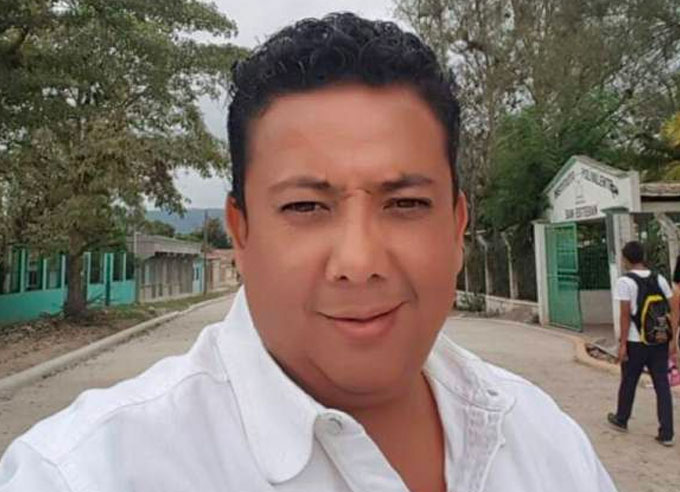A member of the Honduran National Congress faces U.S. charges for drug trafficking, weapons and conspiracy thanks to a DEA-led international drug investigation, federal law enforcement officials announced Friday.
Honduran Congressman Fredy Renan Najera Montoya has been charged in Manhattan federal court with conspiring to import cocaine into the United States and related weapons offenses involving the use and possession of machine guns and destructive devices.
The United States is seeking Najera’s extradition from Honduras and he faces a maximum of life imprisonment if convicted.
“Najera used his position in the Honduran Congress to facilitate huge amounts of drug trafficking and corruption, while using security teams possessing dangerous and deadly weapons that threaten the rule of law and innocent lives,” said Raymond Donovan, DEA Special Agent in Charge of the DEA Special Operations Division, which coordinates multi-agency, multi-national drug trafficking and narco-terror operations worldwide.
“DEA will continue to go after these dangerous criminal individuals and their violent networks with our counterparts across the world utilizing every law enforcement tool at our disposal.”
According to the DEA investigation and in the charges announced, multiple drug-trafficking organizations in Honduras and elsewhere worked together with support from Najera and others to receive multi-hundred kilogram loads of cocaine sent to Honduras from Colombia and elsewhere via air and maritime routes.

Their criminal scheme also included drug transport westward in Honduras toward the border with Guatemala and eventually to the United States.
For protection from official interference, and in order to facilitate the safe passage through Honduras of the cocaine loads, drug traffickers paid bribes to public officials, including certain members of the National Congress of Honduras.
Najera is a member of the National Congress of Honduras who participated in and supported the drug-trafficking activities of large-scale drug traffickers in Honduras and high-ranking members of Mexico’s Sinaloa Cartel.
For example, Najera facilitated the receipt of cocaine-laden aircraft at clandestine landing strips in Honduras that were protected by heavily armed security personnel so that the cocaine could be transported through Honduras, sold to the Sinaloa Cartel, and imported into the United States.
Najera also participated in a maritime cocaine-trafficking venture that involved a $50,000 bribe paid to Fabio Porfirio Lobo, whose father was the President of Honduras at the time of the payment.

On September 5, 2017, in United States v. Lobo, No. 15 Cr. 174 (LGS), U.S. District Judge Lorna G. Schofield sentenced Lobo principally to 24 years’ imprisonment based on his conviction for participating in a conspiracy to import cocaine into the United States.
“As alleged, Fredy Renan Najera Montoya used his power and influence as a Honduran congressman to help facilitate the transport of huge quantities of cocaine from Colombia through Honduras, and ultimately to the streets of the United States,” said Manhattan United States Attorney Geoffrey S. Berman.
“Along with the DEA, we are committed to attacking the drug trade at every level, regardless of a defendant’s status. We look forward to trying Najera on U.S. soil.”
Najera, 41, has been charged with the following three counts:
- Conspiring to import cocaine into the United States
- Using and carrying machine guns and destructive devices during, and possessing machine guns and destructive devices in furtherance of, the cocaine-importation conspiracy, and
- Conspiring to use and carry machine guns and destructive devices during, and to possess machine guns and destructive devices in furtherance of, the cocaine-importation conspiracy.
If convicted, Najera faces a mandatory minimum sentence of 10 years’ imprisonment and a maximum term of life imprisonment on Count One, a mandatory minimum sentence of 30 years’ imprisonment and a maximum term of life imprisonment on Count Two, and a maximum term of 20 years’ imprisonment on Count Three.
DEA’s Special Operations Division Bilateral Investigations Unit coordinated this investigation, which included the DEA New York Strike Force, and DEA Tegucigalpa Country Office, as well as the U.S. Department of Justice’s Office of International Affairs.

















